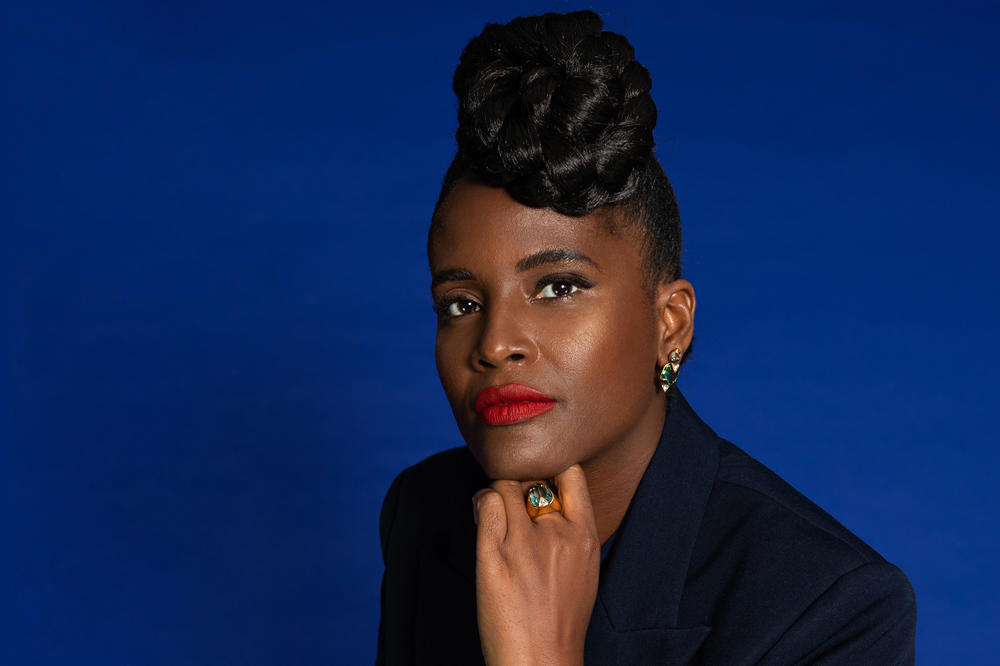Pioneer of Intersectionality
In the Berlin Southern Theory Lecture the Afro-Brazilian philosopher Djamila Ribeiro spoke about the gaps in “democracia racial” and the myth of cheerful post-ethnic coexistence in Brazil.
Dec 20, 2021
In the third Southern Theory Lecture, the philosopher, writer, and activist Djamila Ribeiro explored various myths about Brazilian society.
Image Credit: Flavio Teperman
Djamila Ribeiro is a Black woman from Brazil. What was it like for her to study philosophy? “Studying philosophy in Brazil means reading texts by white men from Europe for seven years,” she says. It is no understatement to say that Djamila Ribeiro wants to change that.
Ribeiro is a philosopher, writer, and activist. She currently teaches at Pontifícia Universidade Católica de São Paulo and is a Fellow at Johannes Gutenberg-Universität in Mainz. She was invited by the Institute of Social and Cultural Anthropology at Freie Universität Berlin and the Leibniz-Zentrum Moderner Orient (ZMO) to hold the Berlin Southern Theory Lecture on December 9. Her topic: “Myths around Brazilian Racism: A view through the lens of Black feminist theory.”
Distorted Self-image of Brazilian Society
In her lecture Ribeiro explored various myths about Brazilian society: For example, the founding myth of modern Brazil, which claims that there is no longer any racism in the country, although the economy was based on slavery for centuries. According to this “theory of racial democracy,” different ethnic groups no longer exist. There are no longer white or black races, but rather only “mestizos,” and where there is no “race,” there is no racism.
To illustrate this distorted self-image of Brazilian society, Ribeiro chose a scene in which white and black men toast each other at a table while the Black woman dances the samba around them. Is everything harmonious? Not if, like Ribeiro, you take the perspective of Black feminists.
The dancer knows about the history of violence that this image is intended to obscure. She knows about the structural violence that means she has to go back to work after the dance: as a maid in the households of the rich or as a nanny to look after the offspring of the upper class.
Would-be Harmony
Ribeiro follows in the footsteps of Afro-Brazilian feminists like Lélia Gonzalez (1935–1994) or Sueli Carneiro (* 1950). Gonzalez, for example, interpreted the myth of the “mãe preta,” the Black Mother, from an Afro-feminist perspective. Another image supposedly depicting harmony: The Black woman who breastfeeds her master’s white child, another myth of Brazilian origin.
Gonzalez not only points out the reality, namely the fact that it was slaves who, as soon as they gave birth to their own children, also had to serve as wet nurses for the children of their owners. But there is more to the story. Rather than just being victims, the “Black Mothers” also acted by passing on their own Afro-Brazilian culture to their protégés. They shared their language, Pretuguês, with which they “Africanized” the Portuguese of the colonialists.
Ribeiro says that while she was studying philosophy, she asked her professors whether there were no women philosophers as well as the canonized men from Europe. Women philosophers? She was told there were none of importance. And what about African philosophy? She was told there was no such thing. Djamila Ribeiro is working to refute her former professors.
This article originally appeared in German on December 15, 2021, in campus.leben, the online magazine of Freie Universität Berlin.





